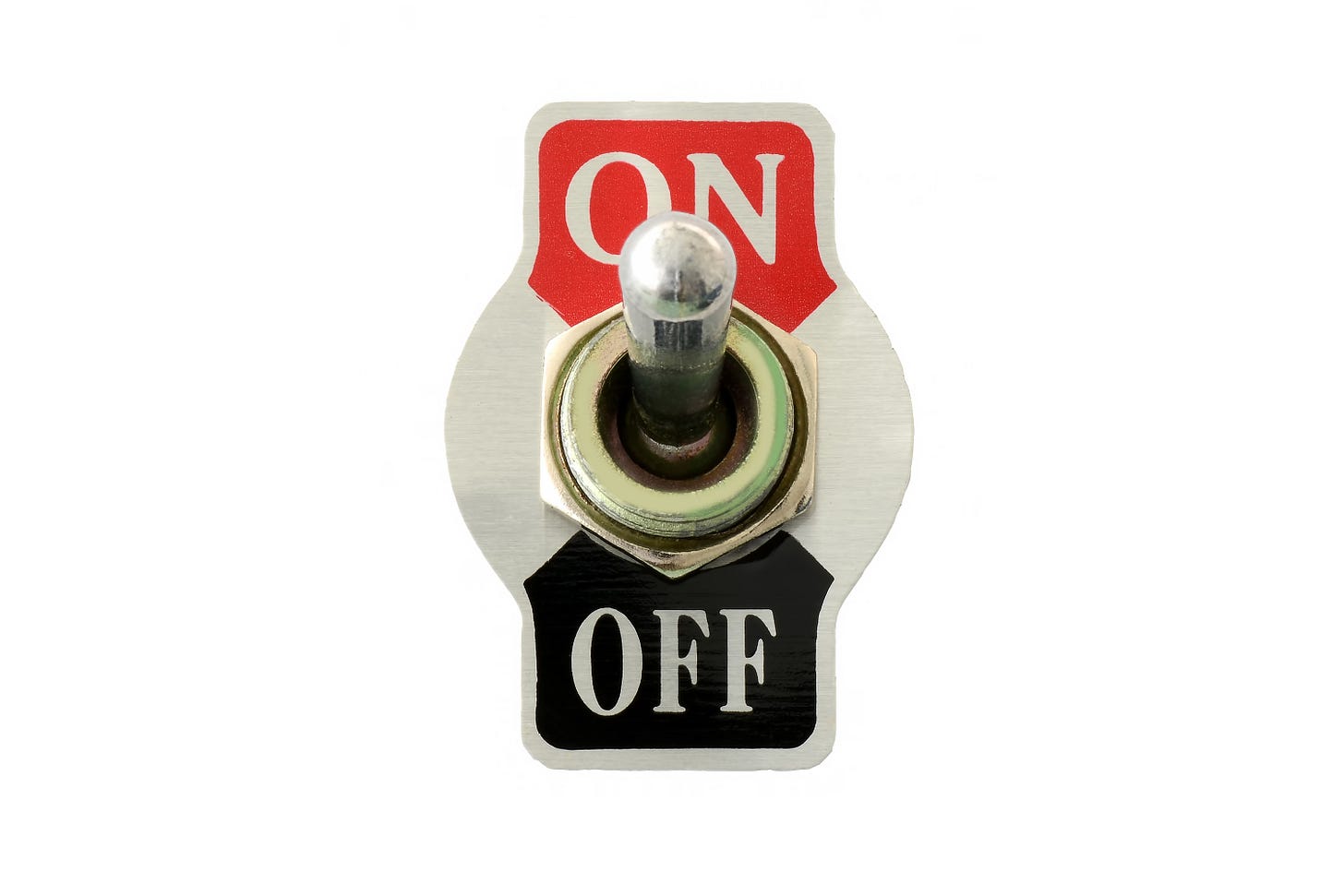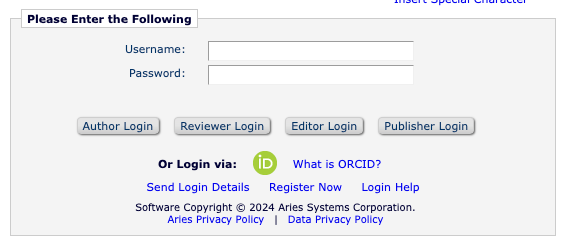Is submitting a manuscript or a grant a big deal?
Sometimes yes, sometimes no. What controls this mindset?
I feel like my brain has a toggle switch:
Sometimes, things are 100% rock and roll, getting research stuff out the door is the natural state of affairs, and the product just flows. Submitting manuscripts and research grant proposals isn’t a massive accomplishment, it’s just the normal state of affairs. It’s what we do as scientists, after all, right?
But other times, the switch is in the other position. Completing one manuscript feels like climbing an insurmountable hill. Getting a proposal out the door is like a slog through a blizzard to an empty hut without enough wood for the stove. Everything just seems like too much.
There’s nothing in the middle. Either I feel like I’m able to get productive research done, or the window to get research done feels like it’s painted shut because of everything else around me. Is this just me, or do you also experience the same extremes?
These polar opposites are about mindset.
Some folks seem to be permanently locked into one mindset, others seem to be permanently locked into the other. I suppose the more research-rich environments and the places with less research support can influence whether or not the people wind up with these mindsets, but it doesn’t have to be that way.
I know some folks in universities with high teaching loads and scant research support who have the general mindset that getting research done is a matter of course. They might not produce a jazillion papers per year, of course, but when they do get something done, they don't see it as a miracle, just a part of the day. But there are other folks, who are in the same environment and receive the same amount of support, who feel like getting anything out of the door is an exceptional feat of perseverance. Because they are working in a place where getting stuff done is a lot harder, I suppose.
I think it’s also a mixed bag in research-intensive environments. Some folks see that their job is to get funded and do research, and that’s what they do, because they see it as their job. Whereas other folks imagine that every grant they land and every paper they publish is some extraordinary accomplishment, rather than the normal contribution that scientists are expected to do. Of course we are more excited about some of our papers rather than others based on the findings, but the distinction that I’m making here is about how hard it is to get the work done.
My mental health has had its ups and downs, and for a while I thought that this research-output-mindset was a function of my well-being. It would make sense that when I’m mentally in a good place, that getting stuff done feels more normal; that when my mental health is on the struggle bus, that getting research done feels harder. But I don’t think that’s quite the case with me, because I’ve noticed that the two just don’t seem to be connected.
What about time? Well, we never, ever have enough time, and productivity is limited by people. It’s not that, I think. I could be on sabbatical with no obligations to anything but still not have that research-is-rolling vibe, so it’s not about time.
I suspect it has to do with whether or not I’m feeling equipped to accomplish what I’m trying to do. If I have the resources, tools, skills, and people around me that can make it happen, then I’m vibing. But when one or more of these get in the way, then the toggle switch is shut to off.
When we are in control of our own research agenda, this means that we have a substantial amount of control over these things that may or may not be impediments. If we choose research projects that we aren’t well-resourced or well-prepared to do, then it’s a struggle. But when we choose ones that we’re all set up for, then things will be running more smoothly. For example, here are some of the ways that project have felt like uphill climbs for me:
-Not being adept enough with R to do what I need to do
-The stuff I want to do involves replication of methods that I won’t be able to train my undergrads to do efficiently
-I don’t have good access to the instrumentation to do the thing
-The people involved in peer review are gatekeepers more concerned about who you are than the quality of your work (for example when I was doing some ecosystem ecology work a while ago, the reviews of manuscripts were more about we I trained and collaborated with)
-I’m working on a new thing and don’t have enough of a handle on the literature so I feel a bit out of depth
That first one on the list has been a big one for me. I made a point in my last sabbatical to develop some proficiency in R, but let me tell you, that proficiency seems to dissolve quite rapidly and doesn’t seem to be additive. I honestly feel like doing stats and building figures is a big hill to slog up, and it’s making stuff feel more difficult in a big way. Putting a lot of time (insofar as it’s available to me) clearly isn’t going to make this seem easy to me. This is mainly why I have a bunch of unpublished manuscripts I’m downright thrilled about. Because this is a steep climb for me.
But in general, is it a good or bad thing that research sometimes feels hard and sometimes feels easy? I think a mix of this might be a good thing. If it’s not feeling like a major accomplishment, then you’re not struggling to grow. But if it’s always a struggle, then you’re not applying the skills that you’ve developed.
Understanding this dynamic about how difficult research feels is important to be mindful about when we’re working with others. When we are training students, this means that students will feel like they’re struggling even when they’re doing just fine, because they’re growing. (And the overconfident ones won’t struggle enough to experience they growth they need.) And when we are working to expand our research communities to include people with different backgrounds and identities, then we need to keep in mind that the ongoing gatekeeping, othering, and homophilous bias makes for a greater struggle to do science on a daily basis.
I’m working on new stuff, with new instrumentation, and new ideas, so it’s feeling like a struggle. But a good one! Like going to the gym and building new muscle. But I also have other stuff I’m more comfortable with that I can go back to. I think being conscious about how my choices affect these struggles help me chart my professional path a little more clearly.




